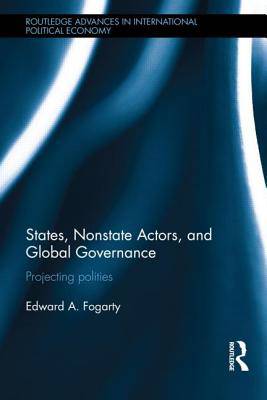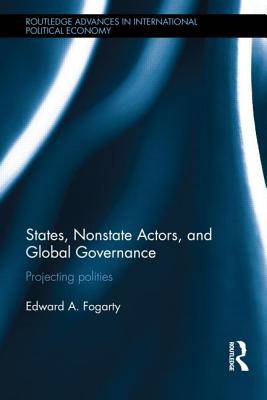
- Afhalen na 1 uur in een winkel met voorraad
- In januari gratis thuislevering in België
- Ruim aanbod met 7 miljoen producten
- Afhalen na 1 uur in een winkel met voorraad
- In januari gratis thuislevering in België
- Ruim aanbod met 7 miljoen producten
Omschrijving
This book addresses whether and how multilateral economic regimes can successfully transition from international institutions--cooperation among states--to global governance--cooperation among states and nonstate actors.
The unprecedented era of peace and prosperity since World War II has been underpinned by multilateral economic regimes, yet in recent years the rise of nonstate actors has intensified international conflicts regarding fundamental questions of how to govern. This book asks whether and how multilateral regimes will be able to adapt. Based on an analysis of multilateral regimes for trade, investment, and poor-country debt, the author concludes that all multilateral regimes--including those in the security, human rights, and environmental areas--face an increasingly existential challenge of reconciling the diverse 'polity preferences' of an ever-growing constituency of state and nonstate actors. This book's key contribution is a single model of state and nonstate actor preference formation, which offers the reader a new way to understand the dynamics of twenty-first century global governance.
States, Nonstate Actors, and Global Governance will be of interest to students and scholars of international relations, economics, international institutions, global governance and international political economy.
Specificaties
Betrokkenen
- Auteur(s):
- Uitgeverij:
Inhoud
- Aantal bladzijden:
- 232
- Taal:
- Engels
- Reeks:
Eigenschappen
- Productcode (EAN):
- 9780415655941
- Verschijningsdatum:
- 14/12/2012
- Uitvoering:
- Hardcover
- Formaat:
- Genaaid
- Afmetingen:
- 156 mm x 234 mm
- Gewicht:
- 503 g

Alleen bij Standaard Boekhandel
Beoordelingen
We publiceren alleen reviews die voldoen aan de voorwaarden voor reviews. Bekijk onze voorwaarden voor reviews.









